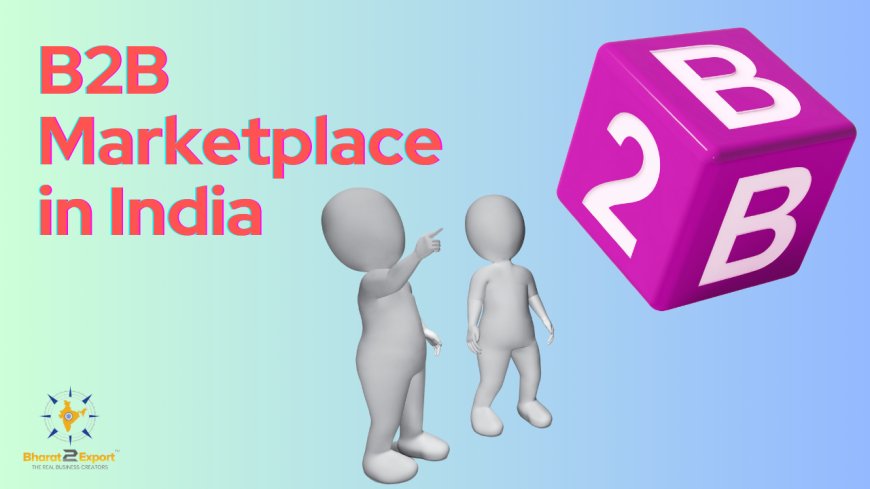How secure are transactions on B2B marketplaces in India?

In the rapidly evolving digital landscape, B2B marketplaces in India are becoming increasingly popular as they offer a seamless platform for businesses to connect and conduct transactions. With the convenience of online transactions comes the critical concern of security. How secure are these transactions? This article delves into the security measures implemented by B2B marketplaces in India, ensuring that businesses can trade with confidence.
Understanding B2B Marketplaces in India
B2B marketplaces in India provide a platform where businesses can buy and sell products and services. These platforms have revolutionized the way businesses operate, offering numerous benefits such as expanded reach, efficiency, and cost savings.
The Importance of Transaction Security
In the context of B2B transactions, security is paramount. Businesses need to trust that their financial and personal information is protected from potential threats. This trust is crucial for the continued growth and success of B2B marketplaces in India.
Encryption Technology
One of the primary methods B2B marketplaces in India use to secure transactions is encryption. Encryption ensures that all data transmitted between buyers and sellers is encoded, making it difficult for unauthorized parties to access the information.
SSL Certificates
SSL (Secure Sockets Layer) certificates are another vital security feature. They provide a secure connection between the user's browser and the server, ensuring that all data exchanged is encrypted and protected from cyber threats.
Two-Factor Authentication
To enhance security, many B2B marketplaces in India implement two-factor authentication (2FA). This requires users to verify their identity using a second form of identification, such as a text message or email verification, adding an extra layer of protection.
User Verification Processes
B2B marketplaces often have stringent user verification processes to ensure that only legitimate businesses can join the platform. This reduces the risk of fraudulent activities and enhances trust among users.
Payment Gateways
Secure payment gateways are essential for safe transactions. B2B marketplaces in India use reliable payment gateways that comply with international security standards, ensuring that all financial transactions are secure.
Regular Security Audits
Regular security audits are conducted by B2B marketplaces to identify and address potential vulnerabilities. These audits help in maintaining a high level of security and ensuring that the platform remains safe for users.
Data Privacy Policies
Strict data privacy policies are enforced to protect user information. B2B marketplaces in India are committed to safeguarding the personal and financial data of their users, ensuring that it is not misused or accessed without authorization.
Fraud Detection Systems
Advanced fraud detection systems are employed to identify and prevent fraudulent activities. These systems use machine learning and artificial intelligence to detect suspicious behavior and take necessary actions to protect users.
Secure Mobile Applications
As mobile usage increases, B2B marketplaces in India ensure that their mobile applications are secure. This includes implementing security measures such as app encryption, secure login, and regular updates to address potential vulnerabilities.
Customer Support and Dispute Resolution
Effective customer support and dispute resolution mechanisms are essential for maintaining trust. B2B marketplaces in India provide robust customer support to address any security concerns and resolve disputes efficiently.
Compliance with Legal Standards
Compliance with legal standards and regulations is crucial for ensuring transaction security. B2B marketplaces in India adhere to national and international laws, providing a secure environment for users.
Educating Users About Security
Educating users about security best practices is an important aspect of maintaining a secure B2B marketplace. Users are encouraged to follow security guidelines, such as using strong passwords and being cautious of phishing attempts.
Insurance and Liability Coverage
Some B2B marketplaces offer insurance and liability coverage to protect users against potential losses. This provides an additional layer of security and assurance for businesses using the platform.
Blockchain Technology
Emerging technologies like blockchain are being explored to enhance transaction security. Blockchain offers a decentralized and tamper-proof system, which can significantly improve the security of transactions on B2B marketplaces in India.
Case Studies of Security Breaches
Examining case studies of security breaches helps in understanding the potential risks and the measures taken to prevent them. Learning from past incidents allows B2B marketplaces to strengthen their security protocols.
Future Trends in Transaction Security
The future of transaction security in B2B marketplaces in India looks promising, with continuous advancements in technology. Innovations such as biometric authentication and AI-driven security measures are expected to further enhance transaction security.
Internal Linking
For more insights into how B2B marketplaces are transforming business operations, check out our article on The Rise of B2B Marketplaces in India. Additionally, explore our guide on Implementing Effective Security Measures to understand the best practices in securing online transactions.
Conclusion
In conclusion, B2B marketplaces in India are taking significant steps to ensure the security of transactions. From encryption technologies and secure payment gateways to user education and advanced fraud detection systems, these platforms are dedicated to providing a safe and trustworthy environment for businesses. As the digital landscape continues to evolve, so too will the security measures, ensuring that B2B transactions remain secure and reliable.
What's Your Reaction?


























